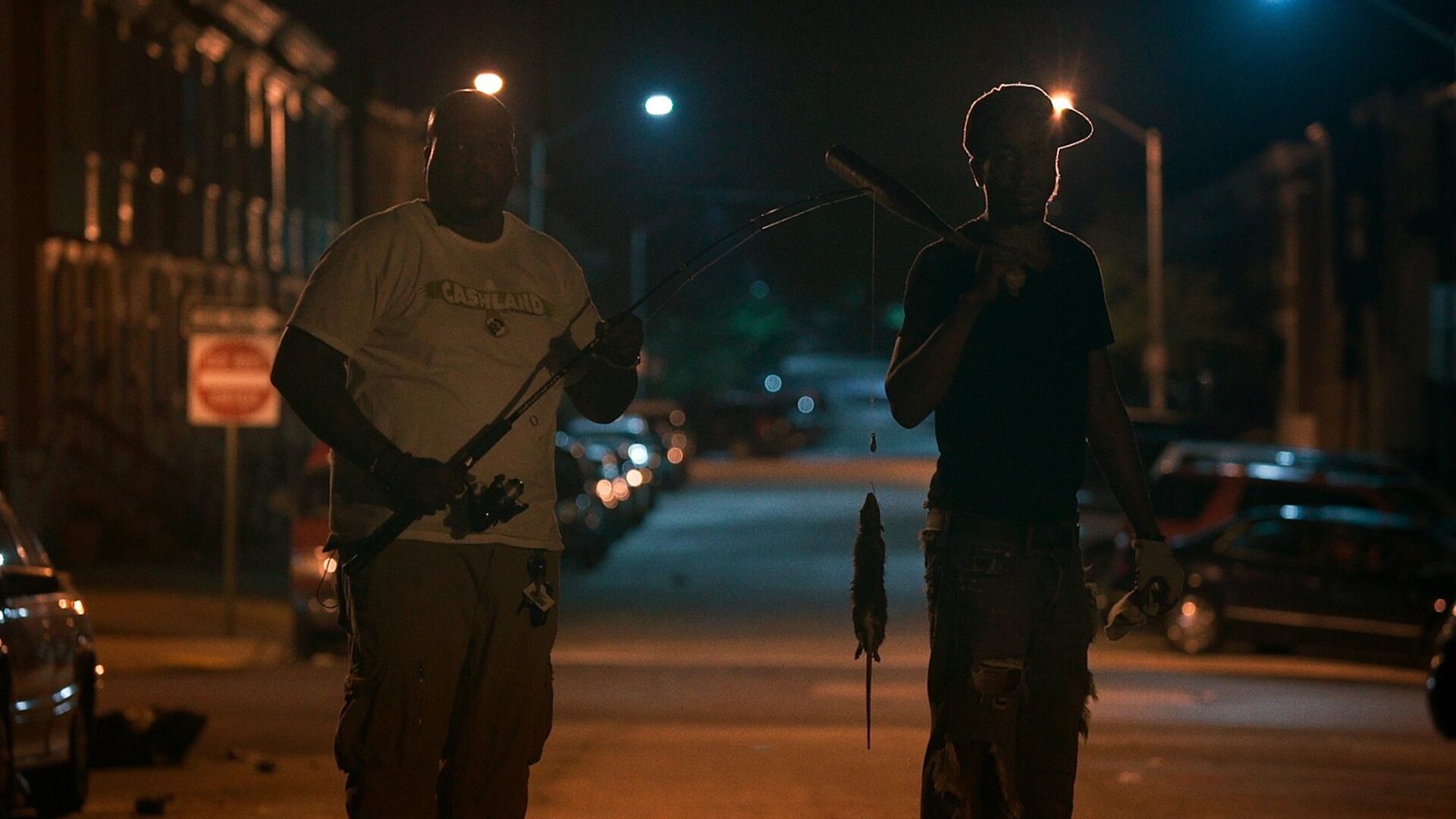I dream of a day where experimental, conversation-starting films reach the size of an audience that mega-budget studio films receive.
This is counterintuitive because the small nature of these films is what allows them to take bold direction, but nonetheless, these are the types of films that use art to generate greater conversation. Rat Film is not only to be seen and experienced but to be discussed.
Two topics that initially seem to have no overlap are fused in this film to generate said discussion. The first, as implied by the title, is the Rat, and specifically, its relationship with humans. As an experiment subject, as a pest, as a pet, and more. The second topic is the city of Baltimore, a neighborhood with a nationwide reputation for its endless cycle of racial and class divisions. What can rats teach us about Baltimore? You could argue this is the thesis of the film.
Juxtaposing two seemingly unrelated subjects is an undervalued, powerful technique, found most often in unconventional documentaries. Watching Rat Film I’m reminded of We Come As Friends, which compares South Sudan to alien invasion, and Heart of a Dog, which compares the director’s pet dog to New York City. To pull off these type of allegories takes a visionary director with a singular perspective. The company of films in this space is few, but the ones that are successful remain on the mental shelf long after the initial viewing. My gut reaction is Rat Film will be long remembered by those who choose to view it.
The initial reasons for comparing rats and Baltimore are literal. We meet residents of the central, black neighborhoods who have a rat infestation. As each analogy enters the film, they become more allegorical, allowing the viewer to see the comparison for themselves rather than be spoon fed it.
My gut reaction is ‘Rat Film’ will be long remembered by those who choose to view it.
Baltimore is home to the prestigious Johns Hopkins University, which we learn has a long history of using rats for human behavioral experiments. More than any other animal, they are the ideal test subject for doctors starting at the turn of the 20th Century to hypothesize on how humans react in various scenarios. Their experiments are low-risk (unless you’re a rat of course). But the ‘experiments’ in place by city planners in Baltimore have continued to have massive ramifications for the poor and black communities who still affected by decisions made that many years ago.
The film jumps between two distinct styles and this intercut give it texture and range. In present-day situations, we are given a vérité style, following a myriad of city inhabitants or people somehow associated with rats. Equal or more screen time takes a massively different approach, using an omnipresent, almost electronic female narrator to tell us relevant information while overlaying more unconventional imagery onscreen. Like the humans that experiment on rats, this narrator gives us an unbiased, emotionless recounting of relevant events, and what we’re told is hard to forget. A description of one rat experiment midway through the film– that can serve as a metaphor for Baltimore, capitalism, or whatever else you want it to– is particularly show-stopping.
A last observation is that this film would make a fantastic double feature with Step, another one of the great documentaries of 2017. Also set in Baltimore, Step is the ultimate story of hope and inspiration. It shows change in action from the bottom up, a contrast to Rat Film’s commentary on top-down elements of Baltimore and human/rat relationships. Together, they give a dimensional look at a city rich in history but plagued with systematic oppression.
Director Theo Anthony has created something truly one of a kind with Rat Film. Much more effective than a formal education and ripe for generating engaging conversation, this is a small-scale film worth visiting. It will surely join the ranks of innovative, thought-provoking documentaries that are unforgettable for anyone who watches it.
‘Rat Film’ is not rated. 82 minutes. Opening this Sunday, October 15th, at The Downtown Independent for a two week run with a national release to follow.
H. Nelson Tracey
Nelson is a film director and editor from Denver based in Los Angeles. In addition to writing for Cinemacy, he has worked on multiple high profile documentaries and curates the YouTube channel "Hint of Film." You can check out more of his work at his website, hnelsontracey.com

